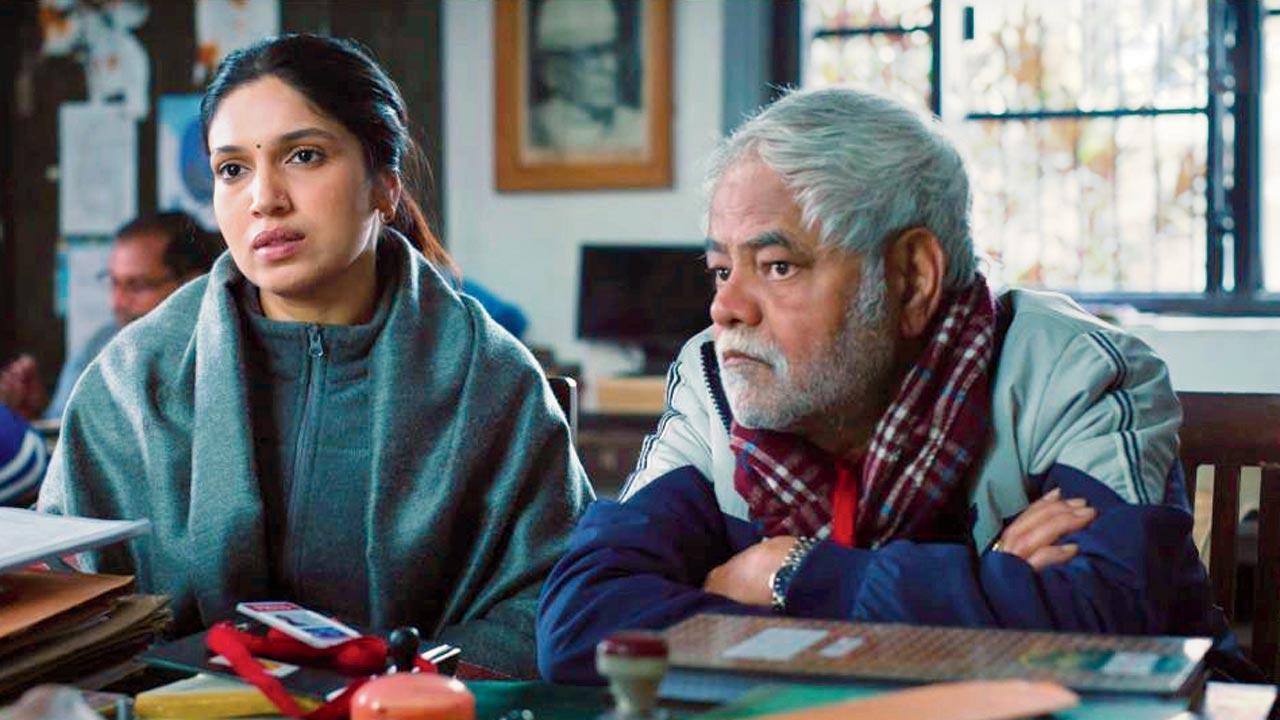Feeling guilty about passing up Bhakshak initially, Bhumi on how fronting drama about child-abuse cases is her attempt at rallying for much-needed change

Bhumi Pednekar
Letting go of a film doesn’t usually leave an actor feeling guilty. But Bhumi Pednekar couldn’t get Bhakshak’s script out of her mind for almost six months after initially passing it up due to factors beyond her control. It was a clear sign that she had to headline it. “When the film came to me during the lockdown, I loved it. For some reason, things didn’t work out at that point. But from then till I started working on it, I re-read the script, and there wasn’t a day when this film didn’t haunt me. I kept feeling guilty [about passing it up],” she recalls.
ADVERTISEMENT
Director Pulkit’s social drama is inspired by real-life cases of children’s sexual abuse at shelter homes across the country. Pednekar points out that the Netflix release is also a grim reminder of our society’s moral corruption. “This film makes us question our conscience, our lack of empathy, how we have all forgotten to feel hurt for others. It’s heartbreaking to know that three-year-olds are living a life like this. Sexual offence against children is the lowest of low that a society can stoop to. Bhakshak comments on the dirt that society has become, and we all are a part of it in varying degrees.”

Besides giving her a hard-hitting drama that holds the mirror up to society, Bhakshak was one of those rare experiences where the actor had the freedom to dig deep. She says it has resulted in one of her most mature performances. “The last time I felt a switch as an actor was during Sonchiriya [2019]. It doesn’t happen often that you get such a complete script and a clear-eyed director. Here, on a busy day, I could tell Pulkit that I needed three hours to prepare for a scene, and he’d say, ‘Take it.’ No questions asked.”
In her eight-year career, the actor has made a habit of seeking good films—be it Dum Laga Ke Haisha (2015) that was a commentary on body shaming, Bheed (2023) that told the plight of migrant labourers during the lockdown, or Afwaah (2023) that revolved around misinformation. Her motivation is simple: “It is my way of feeling I tried,” she reasons. “[My] legacy has to be such that people say, ‘She did everything in her power to make a change.’ We all have our insecurities. But when a film like Bhakshak comes my way, I feel I will act at least 10 years more now. I might not feel that with a commercial potboiler because any other person can do that, but not everybody can do these kinds of films. I do mainstream movies so that I can do a Bhakshak.”
 Subscribe today by clicking the link and stay updated with the latest news!" Click here!
Subscribe today by clicking the link and stay updated with the latest news!" Click here!







